Taking the lead: Women running the show in regional Victoria
WITH change sweeping the state, women in regional Victoria are finding the country can often be the best place to rise through the ranks and make a difference.
VIC News
Don't miss out on the headlines from VIC News. Followed categories will be added to My News.
WHILE calls for female empowerment are reverberating across the globe, in the central Victorian city of Bendigo, women are already running the show.
From federal to grassroots level, almost every senior elected official in the old gold rush town-turned-tree-change hotspot is female.
Bendigo, two hours northwest of Melbourne, may be a microcosm of what’s happening across regional Victoria, where female representation at the highest levels of government, business and industry is growing.
We meet some of the women running regional Victoria.
WOMEN LEADERS FIGHTING INEQUALITY IN THE WORKPLACE
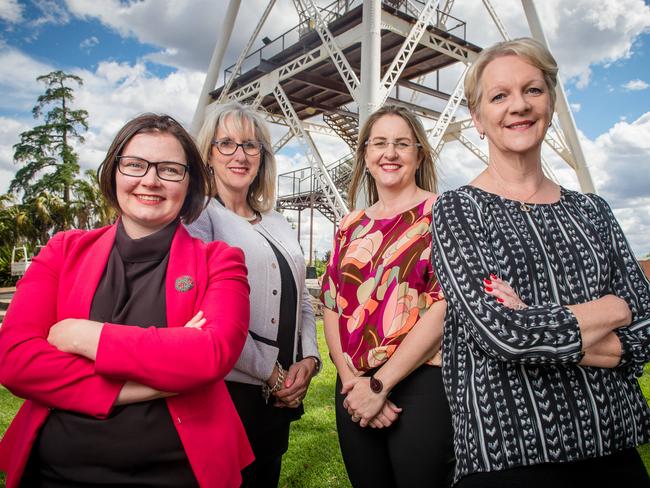
WHEN Bendigo-born Jacinta Allan entered state parliament in 1999, at 25, she became the youngest-ever female parliamentarian in Victoria and the first woman to represent the region in any parliament. The Member for Bendigo East has been blazing a trail since.
Now 44, Allan holds the public transport and major projects portfolios in Daniel Andrews’ government, is the leader of the Lower House and has long been touted as a possible premier. She’s one of three Labor women who represent Bendigo, a region long considered a stronghold for the party.
In 2010, Allan was joined by another state member, Maree Edwards, who replaced her old boss Bob Cameron in the seat of Bendigo West.
They were joined in 2013 by Lisa Chesters, the first woman to hold the federal seat of Bendigo, which has existed since Federation.
Edwards, 55, is deputy speaker of Victoria’s Lower House, while Chesters, 37, a former union organiser, is the shadow assistant minister for workplace relations, and regional and rural Australia in the Federal Opposition.
State Upper House member Luke O’Sullivan, a National whose region of northern Victoria includes Bendigo, is the only gender outlier.
Bendigo’s mayor is ex-Telstra executive Margaret O’Rourke and Nationals Senator Bridget McKenzie has her electorate office in Bendigo. McKenzie was elevated to the federal cabinet in December as Minister for Sport, Rural Health and Regional Communications — the same month she became deputy leader of the Nationals.
She was only the second woman to be elected to a position of leadership in the party.
But McKenzie said at the time that she doesn’t define herself by her gender: “I’m just a country Victorian.”
AUSTRALIAN GIRLS JUDGED ON LOOKS OVER ABILITIES
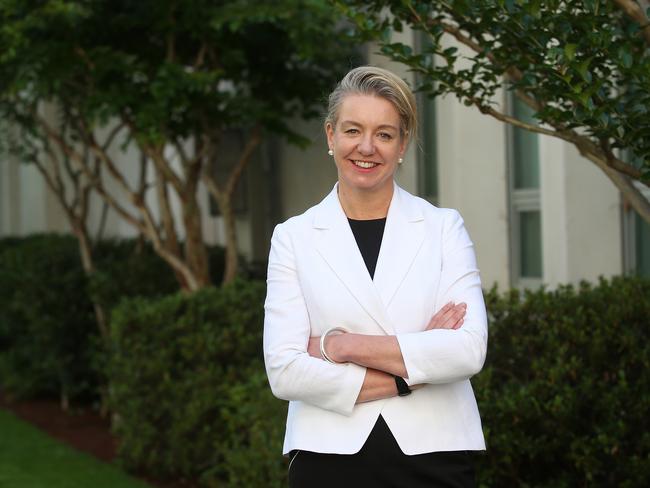

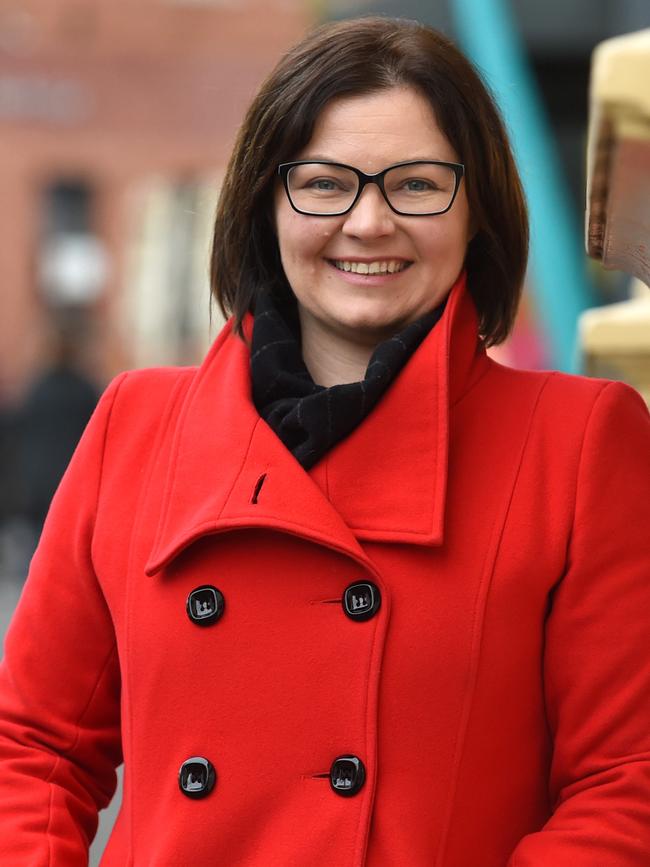
Allan says her home town is a small-scale example of the change sweeping the state, with more women stepping up to high-profile roles.
“My experience would bear out that in regional communities. Women are able to make a number of connections and quite readily get involved in a number of groups — especially because there is a lot of cross-pollination that happens — and work towards leadership positions,” she says.
“It’s a true meritocracy. In regional areas, where people are willing to put their hand up and
give things a go, in my experience across representative roles, in business and community leadership, they’re given those opportunities.”
Early in her career, contesting pre-selection, Allan encountered the “odd and infrequent” gendered comment.
“I had that double impact of being female and young, but it wasn’t anything I saw as a barrier,” she says.
“I simply didn’t bother myself with comments like that. I knew I could give it a shake and people gave me the chance.”
After a tough and at-times personal campaign, Allan prevailed in an election that saw Labor sweep to power after the Jeff Kennett years.
Quick-witted and a polished speaker, she quickly rose through the ranks, being made minister for regional and rural development in 2006 and taking on other high-profile portfolios in government and opposition since.
SUSIE O’BRIEN: WE ALL BENEFIT IF WOMEN ARE GIVEN A FAIR GO
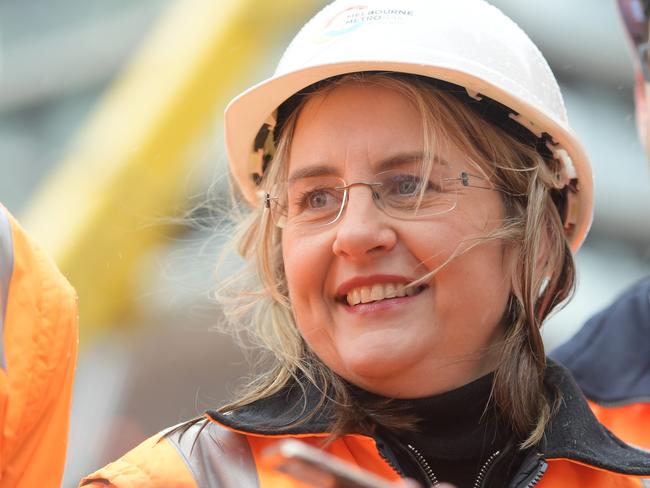
In 2008, she was targeted for her pro-life views ahead of a vote to decriminalise abortion and is now at the forefront of several contentious transport issues.
Allan says having females in cabinet and elsewhere in public life demonstrably makes
a difference for women and others in the community.
“The best approach, in any sphere, is one that ensures there is input from a diversity of people,” the mother of two says.
“Certainly around the cabinet table, there’s a number of us when we look at policy, say in the early childhood space, where we have lived experience to offer.”
Gendered comments are now a thing of the past, Allan says.
“I don’t think people would be brave enough,” she laughs. “Now, as a minister, it comes down to respect, not what gender I am.”
But Allan still subscribes to the “if she can see it, she can be it” philosophy. She recalls a simple but powerful exchange with a young woman early in her first term, when she visited a Bendigo high school to talk with students “who had great potential, but maybe weren’t using it the best they could”.
“I had this great question from a young girl and at the end, she came up and asked for my business card. I gave it to her and she looked at it, then me and said, ‘Well, if you can do it, so can I’ and that has always stuck with me.
“She was able to identify that these sorts of roles are accessible to people from a whole different range of backgrounds.”
FEMINISM NEEDS TO EMBRACE THE POLITICAL RIGHT
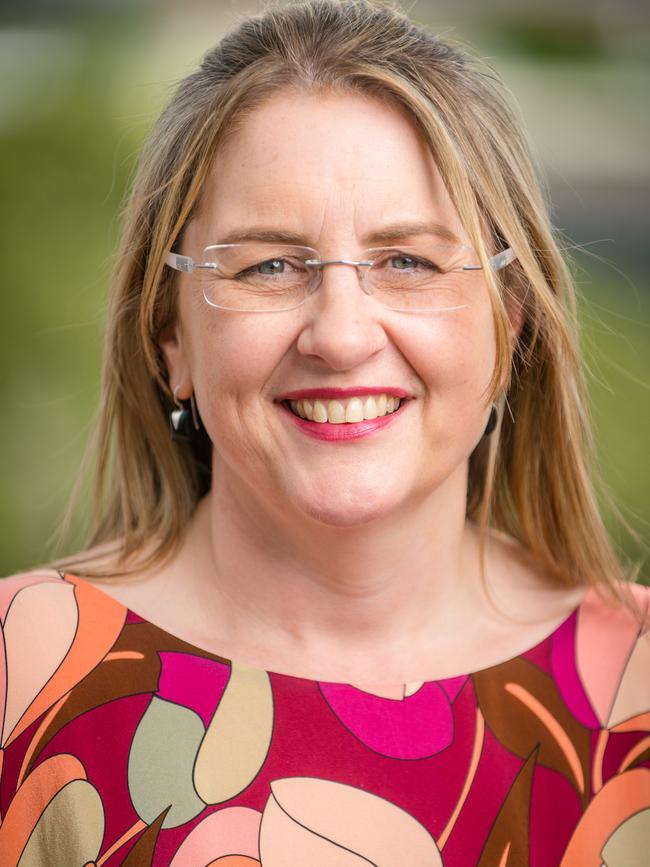
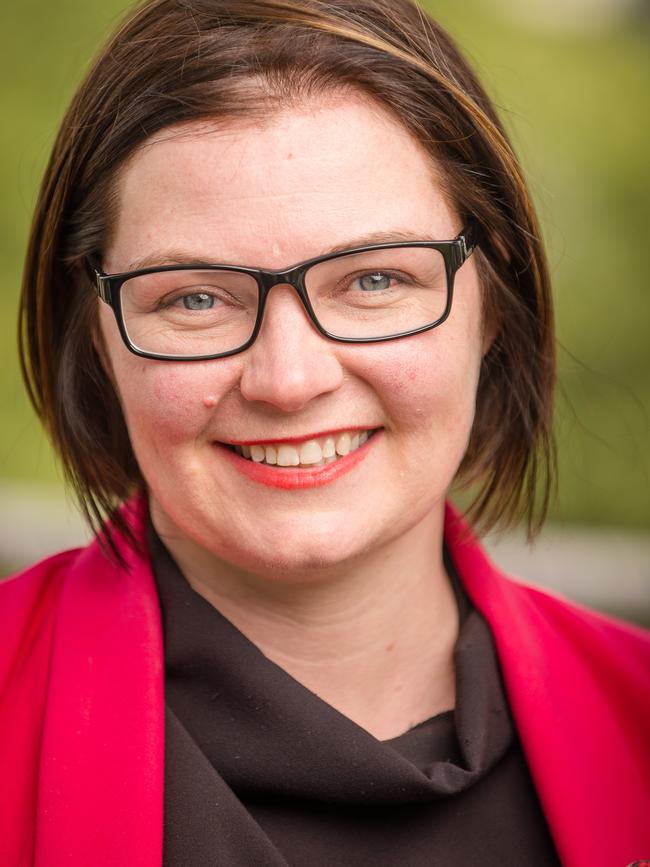
Allan’s federal counterpart Chesters says the female political dominance in Bendigo “kills the idea” that people outside metropolitan areas are traditional “country bumpkins”.
“People in regional areas rally behind the ideas, the personality,” she says.
Rural and regional Victorians respond to warmth and hard work — traits women tend to have in spades, says Chesters, the third-youngest MP in Canberra.
“One of the reasons we have so many women in these positions in Bendigo is because the region is marginal, politically, where you have to get in, fight and work hard,” she says.
A proud feminist, Chesters says Julia Gillard’s prime ministership was a time when “cracks were starting to be put in the glass ceiling”.
“Women provide the alternative to that stereotype of a politician or business leader being male, mid-50s, smoking a cigar with a born-to-rule attitude.”
WOMEN IN POLITICS STILL FACE OUTDATED BARRIERS
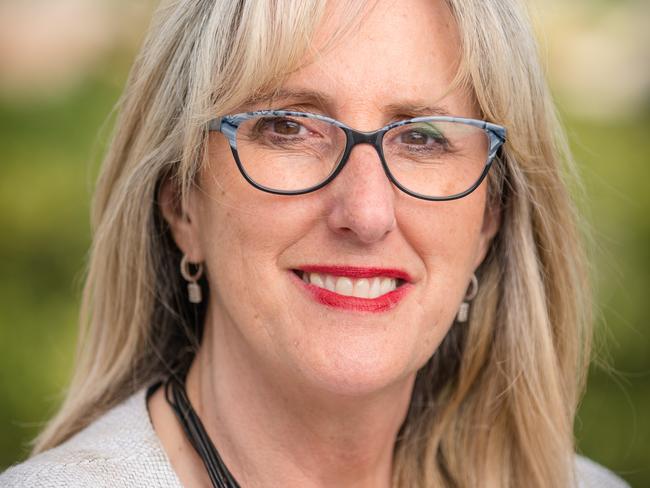
AFTER a high-powered corporate career, the last place Bendigo’s Margaret O’Rourke thought she’d find herself was draped in chains at the town hall.
But that’s where she landed in late 2016, when elected to the City of Greater Bendigo for the first time, becoming mayor a month later.
“I’d never imagined myself in local government, but I came to the role because of a level of dissatisfaction around governance issues and I felt I had something to offer,” the former high-level Telstra manager says.
O’Rourke is director at Goulburn-Murray Water and Bendigo Health and deputy president at Bendigo Kangan Institute. She was previously chair of Bendigo TAFE and a director of the Bendigo Business Council and Tasmanian Ports Corporation.
As someone who’d excelled in a male-dominated industry, her gender didn’t give her pause about entering public life.
“I have been fortunate in that I have always been accepted on my merits,” she says.
Fortunate, too, to call Bendigo home.
“We are definitely unique (in terms of female representation). I don’t think we even realise it. It just is. Women have always been given opportunities and that dates back right into history,” she says.
Of Bendigo’s nine councillors, five are women. O’Rourke has a female deputy, Jennifer Alden, and is one of 29 female mayors across Victoria from 79 municipalities, 22 of which are at regional councils.
“I am a big advocate for seeing more women involved in local government, because it’s the level of government which is closest to the people,” she says.
Women are increasingly putting their hands up for council, too, with 37 per cent of Victorian councillors now women, up from 34 per cent in 2012. All councils have female councillors and 14 have a majority of women.
Corangamite Shire council, in the state’s southwest, is 70 per cent female, with only two men among the seven elected officials. O’Rourke says having more women elected matters: “Women do look at things differently, so that has an impact.”
50 VICTORIAN WOMEN YOU NEED TO KNOW
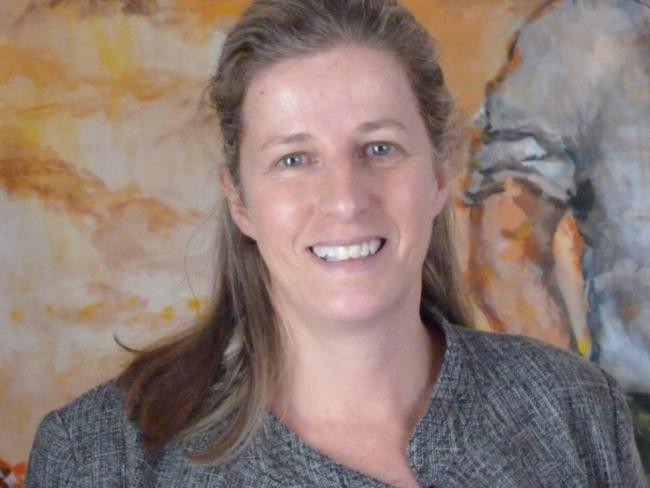
LUCY Roffey is an even rarer commodity than a female councillor. She’s a local government chief executive officer, a position only 12 other women in Victoria hold. The chartered accountant, 50, is CEO of rural Buloke Shire, in the state’s northwest, but next month will take the helm at troubled Central Goldfields Shire, based in Maryborough, near Ballarat.
The elected Central Goldfields council was sacked and administrators appointed last year after a report by the local government watchdog revealed financial mismanagement and governance problems. Former CEO Mark Johnston is facing deception and false accounting charges.
Roffey moved into local government after working for accounting giant Ernst and Young and then the Australian Centre of the Moving Image (ACMI) in Melbourne, where she attracted a $17.5 million State Government investment, which transformed ACMI.
In 2009, she and her husband made a “conscious decision” to move to the country, when their three children were still young.
“We wanted more space, that outdoor lifestyle for us and our kids,” Roffey says.
A senior role at Macedon Ranges Shire saw her move to Castlemaine in central Victoria, where she still lives with her paramedic husband, and early last year, she took up the Buloke job. She doesn’t pause at the challenge ahead.
“To work with the newly appointed administrators at Central Goldfields Shire is a unique opportunity and will also bring me back closer to my family,” she says.
Roffey says disruptive policies, such as the Victorian government recently spilling some boards to get more female representation, are vital to achieving gender balance, but capable women also need to get better at “putting themselves forward” for senior roles.
“Sometimes women think, ‘Oh, I don’t tick absolutely every single box for that role’ and maybe don’t apply,” she says.
“The role I held at ACMI was very broad, and I didn’t have experience in all aspects,
so it did take guts to jump into something like that. It’s that ‘fake it ’til you make it’ idea,
but you find tactics, take advice from experts, learn quickly. Being out of your comfort
zone is a great way to learn.”
Roffey, who is chair of Coliban Water, sits on the Castlemaine Health audit committee and is a member of the Australian Institute of Company Directors, says the strong culture of volunteerism in regional areas is good for women.
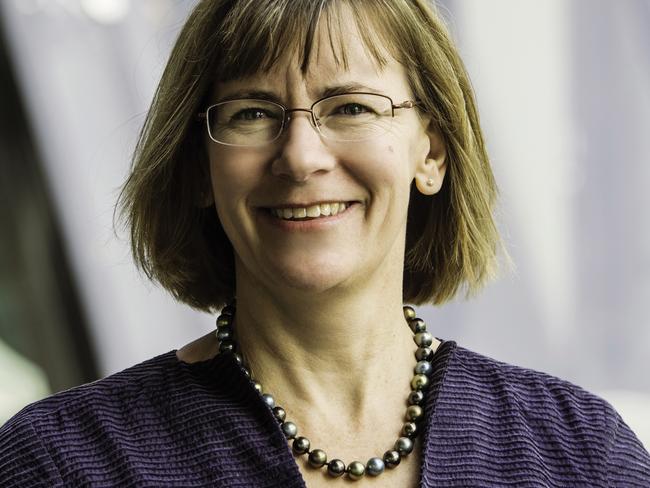
AS chair of V/Line, the decisions made by former banking executive Jenny Dawson have an impact on the lives of regional Victorians every day.
Dawson, 52, left her role as director at the ASX-listed Bendigo and Adelaide Bank after
15 years in 2014.
She is now the chair of V/Line, Victoria’s government-owned regional passenger rail provider, and a director of Sandhurst Trustees and Adelaide Managed Funds, part of the bank’s wealth division.
Dawson also spent 13 years working for state and federal governments on regional development committees and has served on listed, government and not-for-profit boards.
The accountant, born in Kerang, about 300km northwest of Melbourne, chose to move to Bendigo after spending 10 years in Melbourne with international chartered accounting firm Arthur Andersen.
“I had no intention of raising a family in Melbourne and once we made the move, it was purely opportunistic that I ended up with the bank,” the mother of three says.
Dawson says she “never really focused” on being a female in her chosen field.
“I certainly never felt it was a disadvantage,” she says.
“With boards and large organisations looking for diversity at the top level, it’s actually an advantage at the moment.”
And the country is the place to rise through the ranks, Dawson says: “I do think it’s actually easier in the regions. Because of the smaller networks, you can get your name out there.
It can be easy to get lost in Melbourne, based on sheer weight of numbers.”
Dawson is a big believer in not only gender diversity — which studies consistently show delivers better outcomes for boards and big business — but also “cognitive diversity”.
“Group think is what is most dangerous, whether that’s 10 accountants or any other profession,” she says. “You need diversity of thought, what’s referred to as cognitive diversity, to bring a mix of viewpoints and experiences. It’s not just about gender.”


